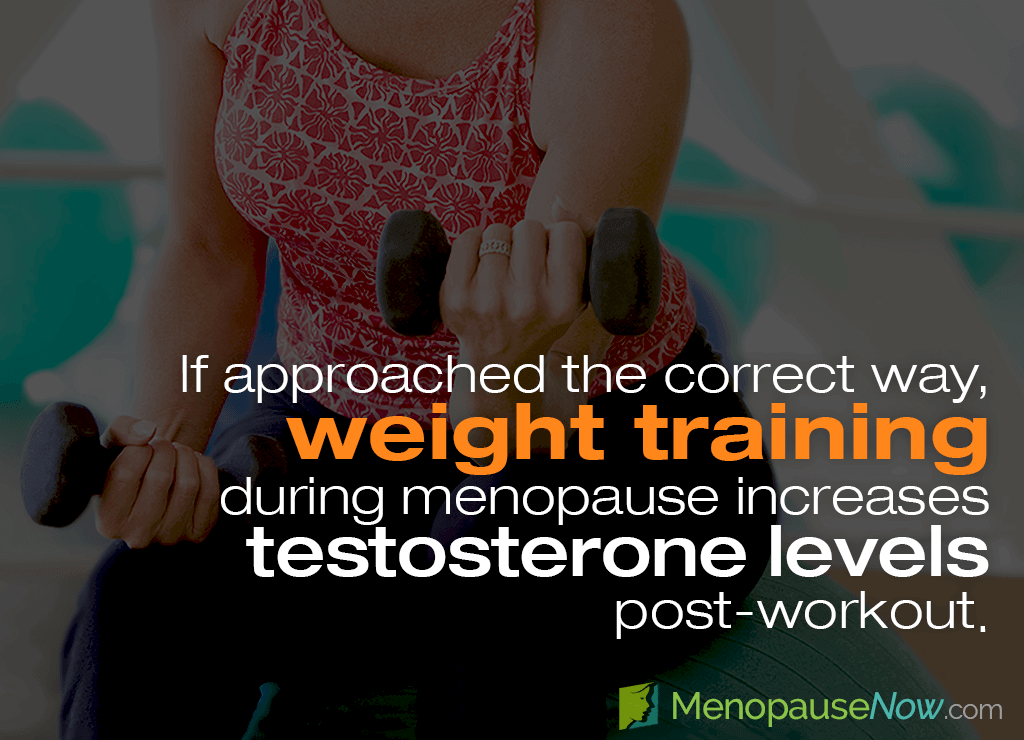Although the testosterone decline is not as drastic during menopause as estrogen's and progesterone's, the reproductive hormone's production does take a dip throughout the years, leading women to search for alternative ways to raise its levels.
Continue reading to find out how weight training increases testosterone during menopause as well as other essential benefits of weight training at this age.
Weight Training and Testosterone during Menopause
If approached the correct way, weight training during menopause increases testosterone levels post-workout.
Studies have shown that moderate resistance and strength training is critical to tissue growth and remodeling.
If these types of trainings are performed two to three times per week, focusing on increased weight, lowered number of repetitions, and short rest intervals, they help build more muscle long-term.
Also, it is essential to focus on weight training exercises that work a large number of muscles, such as deadlifts or squats, for two to three sets of 10 to 15 repetitions each set.
Nevertheless, there are also other benefits to weight training during menopause, such as:
Decreasing osteoporosis risk
Weightlifting increases bone density and strength, which can lower a woman's risk of getting osteoporosis, a degenerative bone disease. Weightlifting is also good for combating other chronic diseases, such as diabetes, heart disease, arthritis, and depression.
Minimizing weight gain
While weight training is a fun way to mix up a workout routine or add more exercise to your daily life, it can also help with weight loss and lower your risk of weight gain during menopause.
Boosting libido
By decreasing stress levels and improving overall mood, exercises such as moderate resistance and strength training can also increase a waning sex drive.
More Information
While participating in weight training is an excellent way to stay in shape as you transition out of fertile years, taking into account other aspects of your life - lifestyle habits, for example - will you help balance hormones and ultimately lose weight. Click on the following link to learn more about natural and effective weight gain treatments.
Sources
- Better Health Channel. (2014). Resistance training - health benefits. Retrieved February 28, 2019, from https://www.betterhealth.vic.gov.au/health/healthyliving/resistance-training-health-benefits
- Kraemer, W.J. & Ratamess, N.A. (2005). Hormonal responses and adaptations to resistance exercise and training. Sports Medicine, 35(4), 339-361. doi: 10.2165/00007256-200535040-00004
- Mishra, N. et al. (2011). Exercise beyond menopause: Dos and Don'ts. Journal of Mid-Life Health, 2(2), 51-56. doi: 10.4103/0976-7800.92524




